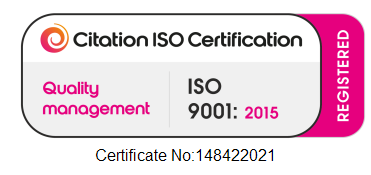In the evolving landscape of clinical trials, the method of data collection is pivotal. With the rise of electronic Clinical Outcome Assessments (eCOA) and electronic Patient-Reported Outcomes (ePRO), the debate between Bring Your Own Device (BYOD) and provisioned devices has intensified. While BYOD offers convenience, provisioned devices are often the preferred choice for ensuring compliance, data integrity, and participant engagement.
Understanding BYOD in Clinical Trials
BYOD allows participants to use their personal devices for trial-related activities. This approach can reduce costs and leverage participants' familiarity with their own devices. However, it introduces several challenges:
- Device variability: Participants' devices may differ in operating systems, screen sizes, and capabilities, leading to inconsistent data collection experiences.
- Security concerns: Personal devices might lack the necessary security features, increasing the risk of data breaches and non-compliance with regulations such as GDPR and 21 CFR Part 11.
- Technical support complexity: Supporting a wide range of personal devices can be resource-intensive and difficult to standardise.
- Participant compliance: Distractions on personal devices and varied levels of digital literacy can affect data accuracy and protocol adherence.
The Case for Provisioned Devices
Provisioned devices are supplied by the sponsor or CRO, and pre-configured for the study's specific requirements. They offer several advantages:
- Standardisation: Uniform devices ensure consistent data collection and user experience across all participants.
- Enhanced security: Devices can be locked down and configured with specific protocols, reducing the risk of data loss or tampering.
- Simplified support: A standardised fleet of devices streamlines training, troubleshooting, and ongoing support.
- Improved compliance: Dedicated devices reduce external distractions and are typically more reliable in supporting timely and accurate data entry.
STK Life’s provisioned devices, such as the STK X3 Smartphone, are engineered with these benefits in mind, ensuring secure, compliant, and scalable deployment in global clinical trials.
Regulatory Considerations
Global regulatory authorities require clinical trial data to be secure, traceable, and reliable. Provisioned devices are better equipped to meet these standards through:
- Data encryption: Safeguarding patient data during collection and transmission.
- Access controls: Limiting device use to authorised personnel and applications.
- Audit trails: Maintaining detailed logs of data activity for regulatory audits.
Using provisioned devices helps clinical trial sponsors demonstrate robust compliance during inspections and approvals.
Participant Experience and Retention
Participant retention is a key performance metric in modern clinical trials. Provisioned devices can enhance engagement by offering:
- Pre-installed and simplified interfaces: Reducing the learning curve for participants.
- Minimised technical burden: Eliminating the need for app downloads, logins, or compatibility issues.
- Tailored support: Standard training and troubleshooting materials applicable to all users.
These factors collectively improve adherence and reduce dropout rates, which are critical to the overall success of a study.
Conclusion
While BYOD provides certain logistical and financial advantages, the operational and compliance challenges it presents in clinical trials are significant. Provisioned devices, by contrast, provide a standardised, secure, and trial-specific solution that reduces risk and enhances both data integrity and the participant experience.
STK Life is committed to enabling smarter, more compliant trials with technology that meets the highest standards. Our range of provisioned clinical trial devices is built for global deployment, flexible scale, and operational simplicity.
Looking to improve compliance and engagement in your trial? Explore STK Life's provisioned devices or contact our team to learn more.
FAQs
Q: What are the main challenges of using BYOD in clinical trials?
A: Challenges include device variability, limited security controls, increased support requirements, and risks to protocol compliance and data quality.
Q: Why are provisioned devices preferred in clinical research?
A: Provisioned devices ensure consistency, enhanced security, streamlined support, and improved data quality across all trial sites and participants.
Q: How do provisioned devices support regulatory compliance?
A: They can be pre-configured to align with GDPR, 21 CFR Part 11, and other regulatory requirements, including data encryption, user access management, and audit logging.
Q: Can provisioned devices improve participant retention?
A: Yes. With fewer technical barriers and a more user-friendly experience, provisioned devices lead to higher participant engagement and lower dropout rates.
Q: How does STK Life support global device provisioning?
A: STK Life provides regulatory-compliant, pre-configured smart devices that work globally and support decentralised trials, site-based studies, or hybrid models.


